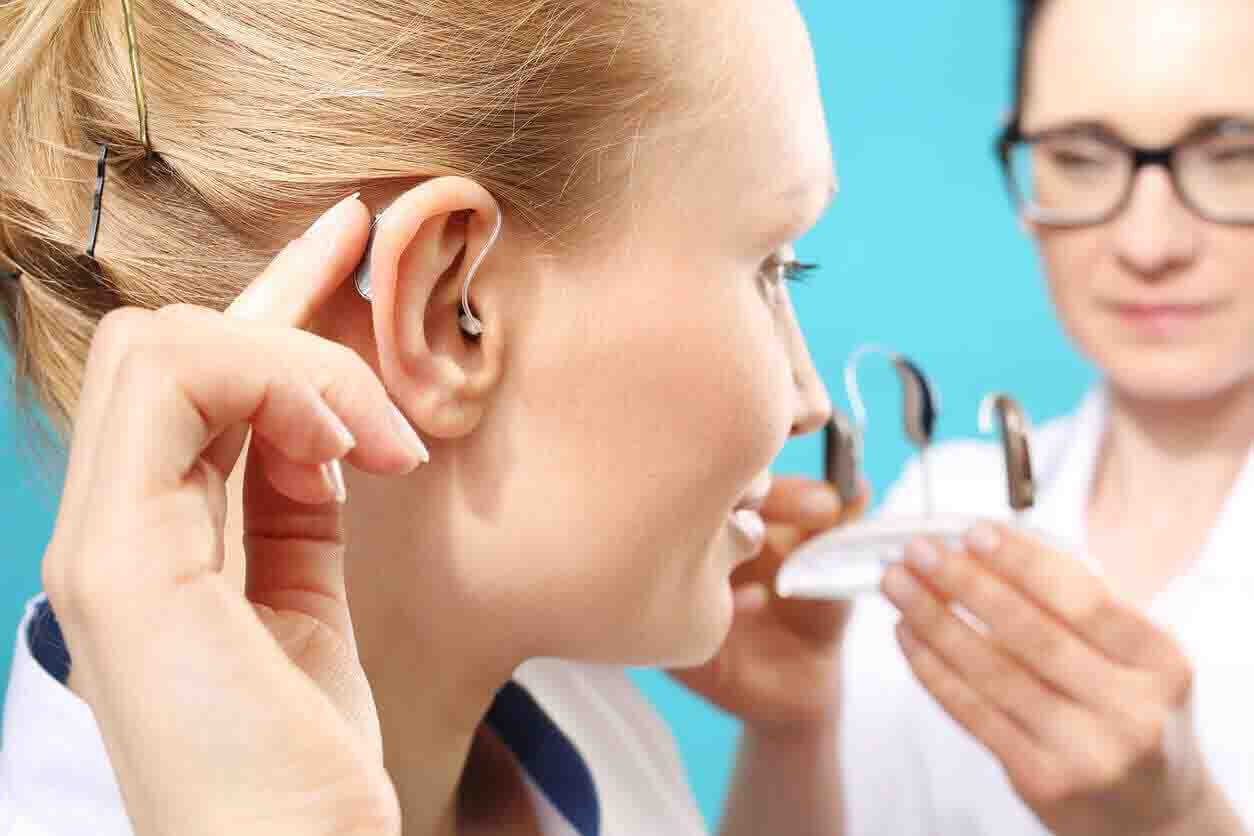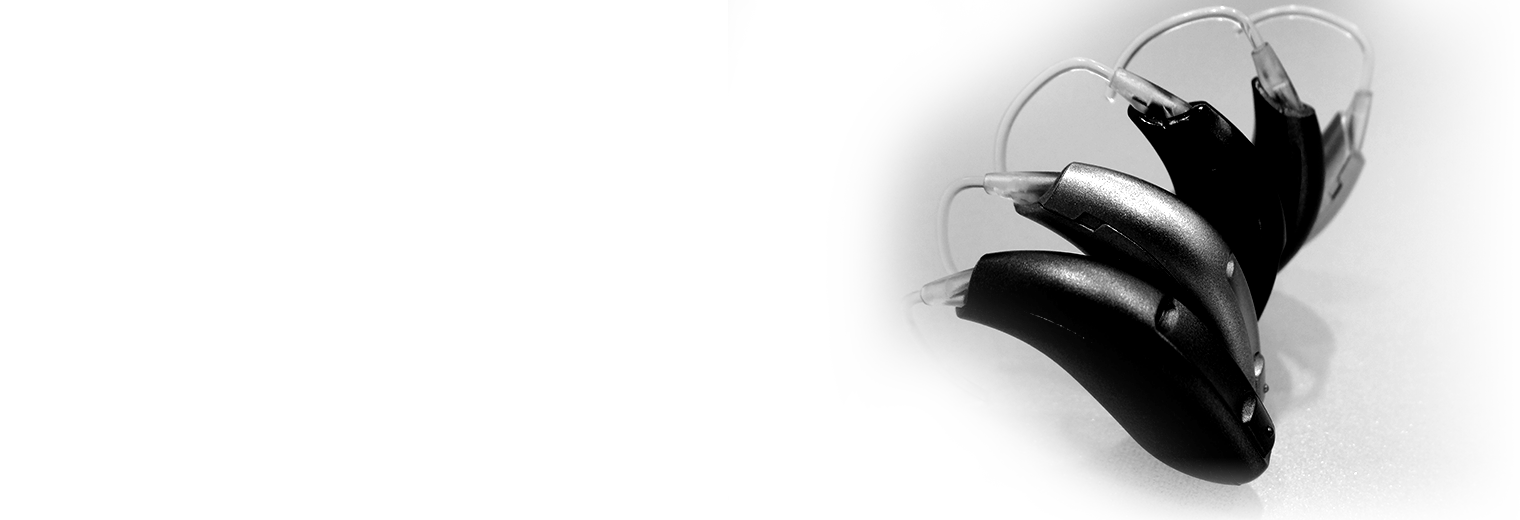|
www.HearingDirectory.ca |
The hearing aid fitting process
By Jennifer Anderson, BS Ed., MSc., Aud(C), Reg. CASLPO, Audiologist Last updated on: October 17th, 2023 A hearing aid fitting is a crucial step on your path to healthy hearing. Your hearing provider will make sure they fit well and the sound is adjusted to your unique needs. Following your hearing test, if you have hearing loss, your hearing care provider may recommend hearing aids. You will then need to determine which hearing aids work best for you and have them fit by your hearing professional. After selecting a hearing aid to order, your next appointment would be the hearing aid fitting. This appointment is crucial to your success as a hearing aid wearer. One of the main reasons why those with hearing aids don't wear them is their ill fit or inaccurate programming. A hearing aid fitting appointment ensures that your hearing aids meet your needs so you continue wearing them. What can I expect from a hearing aid fitting?If this is your first hearing aid, you may not know what to expect from a hearing aid fitting appointment. 
sure you are comfortable with your hearing aids. The focus of the appointment is to ensure:
Your hearing healthcare provider is an expert at fitting hearing aids. At your hearing aid fitting appointment, he or she will show you how to use and care for your hearing aids without overwhelming you. Bring a loved one to your hearing aid fitting, if you canIt is often helpful to have a family member or friend with you at your hearing aid fitting appointment. He or she can help remember the information presented and provide support. It is also good to have a familiar voice to listen to when you first have the hearing aid fitting. Don't worry. Your hearing professional will review the information and answer any questions you have. How long does it take to get a hearing aid fitting?A hearing aid fitting takes one to two hours to complete. You will have plenty of time to ensure your hearing aids are fit and programmed to your exact needs. How to fit hearing aidsWhen the hearing aids you've chosen arrive at the hearing clinic, your hearing professional will have some work to do before your hearing aid fitting appointment. Using specialized software, your hearing healthcare provider programs your hearing aids. This sets your hearing aids to your specific hearing loss, based on your audiogram. Once that is done, you can move on to the hearing aid fitting appointment. What are the main stages of hearing aid fitting?There are three main stages of a hearing aid fitting appointment: the comfort test, the sound test, and the aftercare. Each stage ensures your hearing aids are functioning and continue functioning the way you want them to. 1. Comfort testYou'll want to make sure the hearing aids fit snugly in your ear canal. If they are behind-the-ear (BTE) aids, you'll also want the aids to be comfortable and secure behind your ears too. Hearing aids should not be painful to wear. Your hearing professional will show you how to properly put on and remove your hearing aids. 2. Sound testYour hearing care provider will verify that the hearing aids are set to the accurate sound levels using a real-ear system. This involves measuring the sound from the hearing aids while you wear them. Your hearing professional could also simulate the response in a test box. Then, he or she may fine-tune the sound you hear based on your initial reactions. 3. Hearing aid care and useOnce the hearing aids fit well in your ears, you will learn how the hearing aids work and how to care for them. Typical information covered at a hearing aid fitting includes:
It takes time to acclimate to hearing aids
you had once forgotten is all part of the hearing aid experience. It can take a few weeks to a few months to get used to hearing better. You will notice that your own voice sounds a little different. Other people's voices should sound clearer. After your hearing aid fitting, you may start to notice little sounds like a ticking clock, a blowing fan or the birds chirping outside. With regular use of your hearing aids, these sounds will once again seem normal. You can request custom hearing aid settingsCommunicate any concerns you have to your hearing healthcare provider at your hearing aid fitting. Your hearing aid settings can always change to improve your listening experience. Everyone's experience of their hearing is unique to them. One of the more common requests at a hearing aid fitting is to add a setting for listening to music or to mask tinnitus. Though hearing aids cannot heal your damaged hearing, they are amazingly flexible devices. Your hearing healthcare provider will work with you to get you the best outcome. Follow-up visits and hearing aid adjustmentsYour hearing aid fitting appointment shouldn't be your last at a hearing clinic. The sounds you hear in the office do not provide the best test of your hearing aids. The situations and people you had difficulty hearing before you had them fit are the true test. You will likely have a follow up appointment a few weeks after your hearing aid fitting. Here, you can discuss your experiences with the aids outside the clinic. Remember, your hearing professional can make many adjustments to your hearing aids. You can also use assistive listening devices or accessories with your hearing aids. Your hearing healthcare provider should provide counselling on all aspects of your hearing at your hearing aid fitting. You should also have your hearing loss monitored with annual hearing tests. Your hearing aids will need adjustments if your hearing loss changes over time. You may even get used to hearing from the hearing aids and find you need them fine-tuned further. Tell your hearing care professional your specific needs. At your hearing aid fitting, he or she will customize a plan that will get you the best results. Are you in Canada? Find a hearing instrument specialist or audiologist near you. Jennifer Anderson, BS Ed., MSc., AudiologistContributing author Jennifer Anderson is an experienced audiologist, having practiced for over 20 years in a variety of clinical and managerial settings. She graduated with a master’s degree in audiology from the University of Southampton, UK. Her experience includes working in diagnostics, pediatrics, tinnitus, vestibular/balance, and aural rehabilitation at several teaching hospitals. Since moving to Canada in 2006, she has worked with all age groups, both diagnostically with ENT colleagues, and in providing rehabilitation. She has taught at Georgian College in Barrie and is currently an elected council member at the College of Audiologists and Speech Language Pathologists of Ontario. She very much enjoys her regulatory work and is an advocate for patients’ rights and high-quality patient care.
You are reading about: Related topics
More information about hearing loss. Featured clinics near me
Schedule a hearing test with Healthy Hearing. Find a clinicThe Healthy Hearing Report |
|
www.HearingDirectory.ca |
The hearing aid fitting process
By Jennifer Anderson, BS Ed., MSc., Aud(C), Reg. CASLPO, Audiologist Last updated on: October 17th, 2023 A hearing aid fitting is a crucial step on your path to healthy hearing. Your hearing provider will make sure they fit well and the sound is adjusted to your unique needs. |
 Are you located in the United States?
Are you located in the United States?

